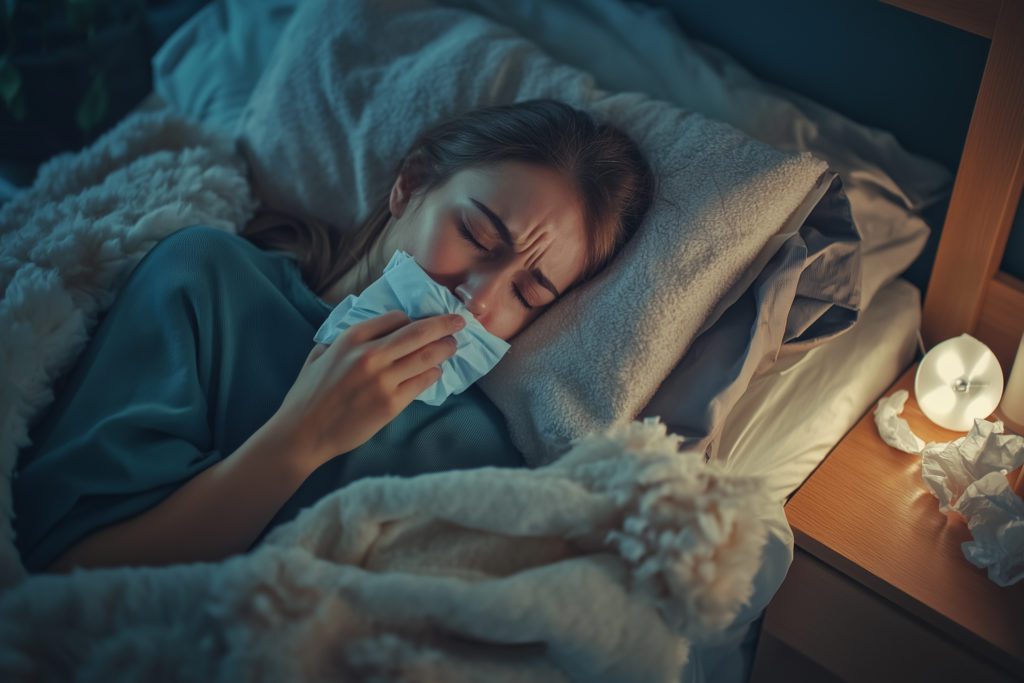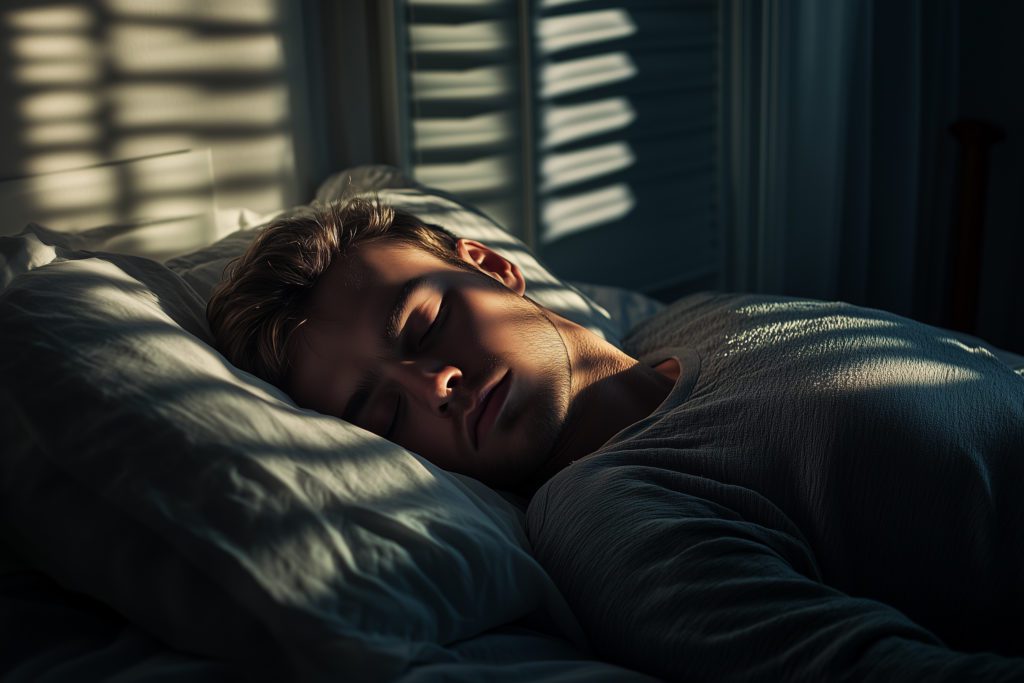
The Role of Sleep Therapy in Treating Mental Health Disorders
Discover the powerful connection between sleep and mental health. Learn how improving sleep can impact mood with this helpful advice.

Ever felt groggy, irritable, or unable to concentrate? Chances are, you weren't getting enough sleep. Sleep is more than just a nightly recharge; it's essential for our overall health and well-being. When we sleep, our bodies repair and rejuvenate, and our minds process information and emotions.
But did you know that sleep is also closely linked to our mental health? Studies have shown that sleep and mental health go hand-in-hand. Poor sleep can contribute to or worsen symptoms of depression, anxiety, and other mental health disorders.
That's where sleep therapy comes in. Sleep therapy is a specialized treatment that helps people improve their sleep habits and quality. By addressing sleep issues, sleep therapists can significantly manage and improve mental health symptoms.
Understanding Sleep and Its Functions
Sleep isn't just a time-out from our busy days; it's a crucial function that helps our bodies and minds recharge, repair, and prepare for what's next. Think of sleep as your body's nightly maintenance check. It plays a critical role in healing and repairing your heart and blood vessels and balancing your body’s hormones. This nightly reset helps regulate mood, store memories, sharpen brain function, and improve overall health.
The sleep cycle is a natural process that repeats throughout the night. It's divided into three phases:
- Light Sleep: This is the phase where you start to drift off. You're not quite asleep yet, but your body is beginning to relax.
- Deep Sleep: During this phase, your body does most of its repair work. It's a crucial time for physical recovery and growth. Research shows that it’s also the type of sleep for efficient learning - it’s where you start storing what you learned the day before.
- REM Sleep: This phase, which stands for Rapid Eye Movement, is where most dreaming occurs. It's essential for emotional regulation and memory formation.
Each phase has its purpose, supporting various functions vital for physical and mental well-being. Understanding these phases highlights the importance of a full and uninterrupted night's sleep, showing how sleep and mental health are deeply interconnected.
By cycling through these phases properly, your body gets a chance to heal emotionally and physically, setting the stage for a healthier, happier you.
Link Between Sleep and Mental Health
Imagine trying to drive a car with a foggy windshield. You can't see clearly, and it's hard to make good decisions. Poor sleep is like that fog for your mind. When you're sleep-deprived, it's harder to concentrate, think clearly, and manage your emotions.
Sleep and mental health are closely intertwined. Studies have shown that poor sleep can contribute to or worsen symptoms of:
- Depression: Lack of sleep can make you feel more irritable, hopeless, and disinterested in activities you once enjoyed.
- Anxiety: Sleep deprivation can make you feel more anxious, restless, and easily startled.
- Bipolar disorder: Sleep disturbances can trigger mood swings and make it harder to manage symptoms of bipolar disorder.
If you're struggling with a mental health disorder, it's important to pay attention to your sleep habits. Improving your sleep can make a big difference in managing your symptoms.
What is Sleep Therapy?
Sleep therapy is a specialized treatment that helps people improve their sleep habits and quality. It's like learning a new skill to help your body and mind relax and rest better.
Cognitive Behavioral Therapy for Insomnia (CBT-I)
This is a highly effective type of therapy specifically designed to address insomnia. CBT-I involves identifying and changing beliefs and behaviors that affect your ability to sleep well. It includes strategies like setting a consistent sleep schedule, controlling stimuli that disrupt sleep, and learning relaxation techniques.
Sleep Hygiene Education
This involves learning about good sleep habits and the environmental factors that can lead to better sleep. Simple adjustments like optimizing your bedroom environment (think cool, dark, and quiet), establishing pre-sleep rituals like reading or gentle stretching, and maintaining a consistent sleep schedule can make a huge difference.
Sleep Restriction Therapy
A part of CBT-I, this therapy involves limiting the amount of time spent in bed to the actual time spent sleeping. This might sound counterintuitive, but the goal is to create mild sleep deprivation to promote quicker sleep onset and more efficient sleep. Over time, the amount of time allowed in bed gradually increases until a healthy sleep duration is achieved.
These therapies directly address the behaviors and patterns that disrupt sleep, providing tools and techniques to help people fall asleep faster, stay asleep longer, and improve the overall quality of their sleep.
In terms of sleep and mental health, these therapies not only aim to improve sleep but also significantly contribute to better mental health outcomes by reducing stress, anxiety, and depressive symptoms. By tackling sleep issues, individuals can often see an improvement in their overall mental well-being.
Benefits of Sleep Therapy for Mental Health Disorders
Treating sleep disorders can have a profound impact on mental health conditions. Here's how:
- Reduced Symptoms: Addressing sleep disorders can lead to a significant reduction in symptoms associated with mental health conditions. For example, people with depression may experience a decrease in feelings of sadness, hopelessness, and fatigue.
- Enhanced Mood Regulation: Improved sleep quality can help individuals manage their emotions and reduce mood swings. This is particularly beneficial for those with bipolar disorder.
- Increased Cognitive Function: Better sleep can improve memory, concentration, and problem-solving abilities, which are crucial for managing mental health challenges.
- Improved Coping Mechanisms: Well-rested individuals are better equipped to cope with stress and challenges, which can help prevent or reduce the severity of mental health symptoms.
- Increased Energy Levels: Treating sleep disorders can lead to increased energy levels, making it easier to engage in activities that promote mental well-being, such as exercise and socializing.
By addressing sleep disorders, individuals can experience a significant improvement in their overall mental health and quality of life.
Practical Tips for Better Sleep
Getting good sleep shouldn’t be a puzzle. Here are some straightforward, easy-to-implement tips that can complement sleep therapy and help you achieve a restful night, boosting both your sleep and mental health:
- Stick to a Sleep Schedule: Consistency is vital. Going to bed and waking up at the same time every day—even on weekends—helps regulate your body's internal clock and improves the quality of your sleep.
- Create a Bedtime Ritual: Establish a calming pre-sleep routine to signal to your body that it's time to wind down. This might include reading a book, taking a warm bath, or doing some gentle yoga stretches.
- Optimize Your Bedroom Environment: Make your bedroom a sleep sanctuary. Keep it cool, quiet, and dark. Invest in a good quality mattress and pillows to support a comfortable night's sleep.
- Limit Screen Time Before Bed: The blue light emitted by phones, tablets, computers, and TVs can interfere with your ability to fall asleep. Try turning off these devices at least an hour before bedtime.
- Get Active During the Day: Regular physical activity (around 30 minutes of moderate activity) can help you fall asleep faster and enjoy deeper sleep—but don't exercise too close to bedtime, as it might have the opposite effect.
- Manage Worries: Try to resolve your worries or concerns before bedtime. Jotting down what's on your mind in a journal and setting it aside for tomorrow can help clear your head and reduce stress.
By integrating these tips into your daily routine, you can enhance the effectiveness of sleep therapy and make significant strides in improving your sleep and overall mental health.
Embracing Restful Nights for a Healthier Mind
Sleep and mental health are closely intertwined. Addressing sleep disturbances can significantly improve overall well-being and help manage mental health symptoms more effectively.
Remember, seeking professional help is a sign of strength, not weakness. If you're struggling with sleep or mental health issues, don't hesitate to reach out to a qualified healthcare provider. Together, you can find the support and resources you need to achieve a healthier, happier life.

Written by
Emily Mendez
Emily Mendez is a former therapist and mental health author. She is one of the leading voices in mental health. Emily's writing has appeared in eCounseling, SonderMind, and more. Emily is frequently interviewed by Healthline, Fatherly, INSIDER, Family Circle, and other national media for her advice and expert opinion on the latest mental health topics.
Download Pillow
Get help
Press & News
Legal
Connect
X (Twitter)
Company
Copyright © Neybox Digital Ltd.



